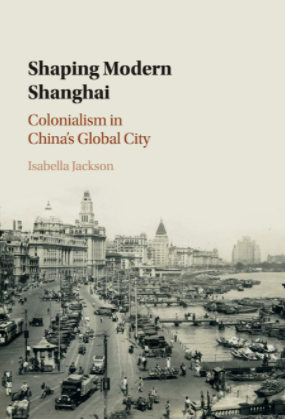|
I wish I had the time to write a full review of this book. However, with online Chinese classes starting up again, my attention has been turned singularly toward studying Chinese. In short, I wholeheartedly recommend Isabella Jackson's Shaping Modern Shanghai: Colonialism in China's Global City. Especially for anyone interested in the colonial period in China, this is an important book for understanding the influence of the Shanghai Municipal Council not only on the whole of the International Settlement's institutions, but on the lives of individuals who lived in and around the Settlement.
0 Comments
|
AuthorNakota L. DiFonzo ArchivesCategories |

 RSS Feed
RSS Feed